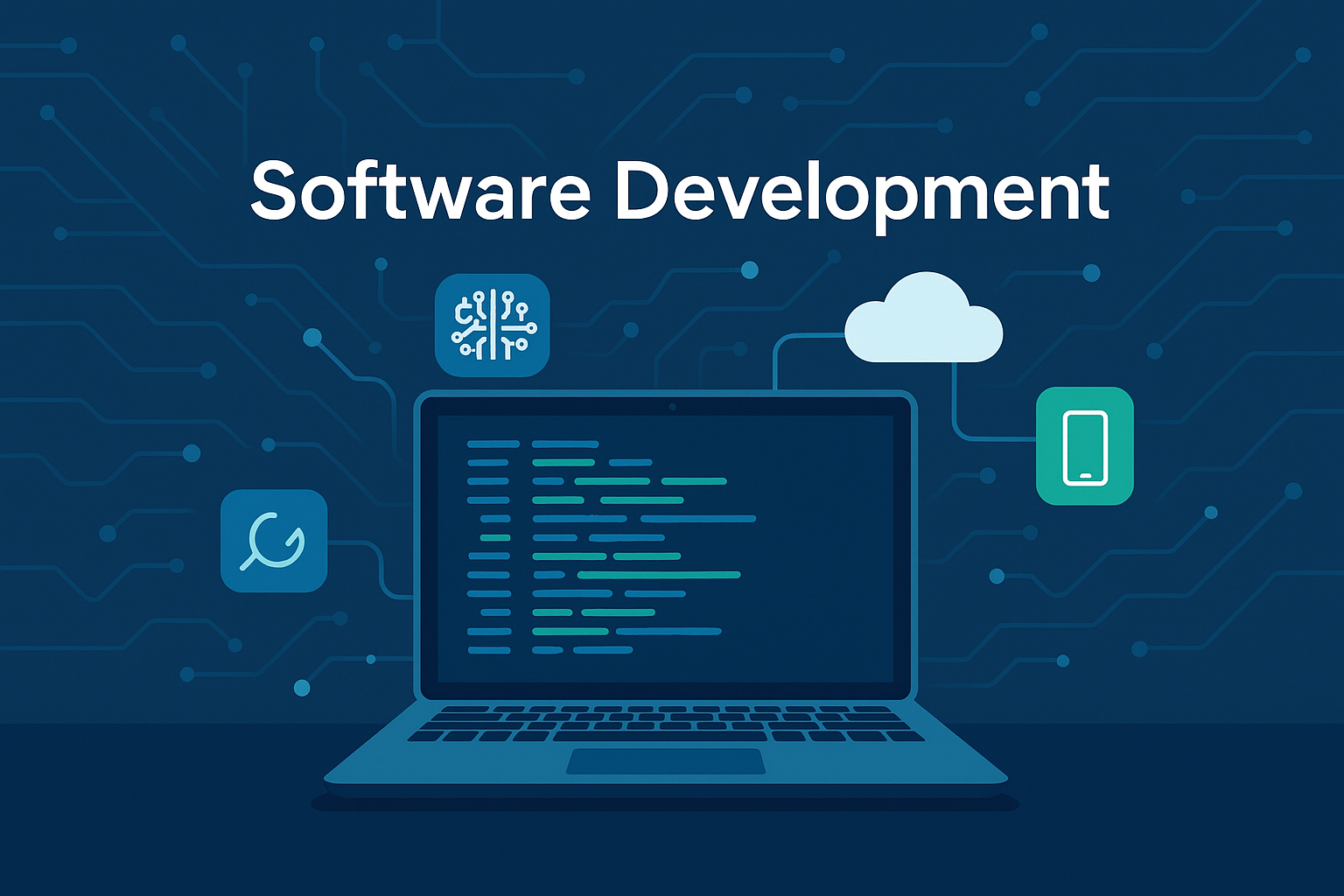
Mastering Software Development: Trends, Tips, and Best Practices
Discover the newest trends in software development while picking up useful coding tips and best practices for creating cutting-edge applications.
IntroductionSoftware development is the cornerstone of today's digital landscape, influencing nearly every facet of modern life—from websites and mobile applications to enterprise solutions
Introduction
Software development serves as the foundation of our digital age, shaping numerous aspects of our daily experiences—from websites and mobile apps to complex enterprise solutions. Whether you’re just beginning your programming journey or you’re a seasoned developer staying updated with the latest trends, understanding the essential tools, techniques, and best practices that characterize software development is vital.
1. Significance of Software Development
Software development transcends simple coding; it focuses on effectively addressing real-world challenges. Companies in various industries rely on software to boost productivity, enhance customer satisfaction, and maintain a competitive edge. With the advent of cloud computing, artificial intelligence, and mobile technologies, developers are encouraged to adopt modern strategies that surpass traditional approaches.
2. Notable Trends in Software Development
Several innovative trends are shaping the future of software development:
- Cloud-Native Development: Crafting applications specifically for cloud environments improves both scalability and reliability.
- DevOps Practices: Merging development and operations through DevOps facilitates quicker deployments and ongoing enhancements.
- AI-Enhanced Development: Artificial intelligence supports automation in tasks such as code reviews, testing, and even code generation.
- Low-Code & No-Code Platforms: These platforms enable swift application development, particularly for organizations with limited development resources.
- Microservices Architecture: Dividing applications into smaller, independent services enhances maintainability and scalability.
3. Essential Developer Tools
To thrive in today’s software development landscape, developers should leverage a variety of tools:
- Version Control: Use Git and GitHub to facilitate collaboration on projects.
- IDEs: Integrated Development Environments like Visual Studio Code, JetBrains, and Eclipse improve coding efficiency.
- Testing Tools: Automated testing frameworks such as Selenium, JUnit, and PyTest uphold software quality.
- Continuous Integration/Continuous Deployment (CI/CD): Platforms like Jenkins, CircleCI, and GitHub Actions streamline the deployment process.
4. Best Practices in Software Development
Adhering to recognized best practices is crucial for producing robust, maintainable, and scalable software:
- Code Quality: Strive for clean, readable, and well-documented code.
- Agile Methodology: Implement agile frameworks like Scrum or Kanban for iterative development.
- Unit Testing: Ensure that each component functions independently before integration.
- Security First: Incorporate security measures throughout the development lifecycle.
- Collaboration: Utilize tools that enhance communication and project management.
5. Challenges Developers Encounter
While embarking on a software development journey can be fulfilling, it also presents unique challenges:
- Keeping Pace with Rapid Technological Advances: New programming languages, frameworks, and libraries are continuously emerging.
- Meeting User Expectations: Users expect applications that are seamless, swift, and secure.
- Balancing Speed and Quality: Rigorous deadlines can sometimes compromise code quality.
- Managing Large Codebases: As applications expand, their complexity can grow significantly.
6. Learning and Career Development
Aspiring developers must prioritize ongoing education. Engaging in online courses, coding boot camps, and practical projects sharpens essential skills. Participating in open-source projects and connecting with developer communities provides invaluable experience and networking opportunities.
Conclusion
Software development is a vibrant and fulfilling career path. By staying informed about current tools, methodologies, and trends, developers can create innovative, efficient, and high-quality software. Whether starting out or established in your field, embracing best practices and committing to continuous learning are keys to flourishing in the ever-evolving realm of software development.







